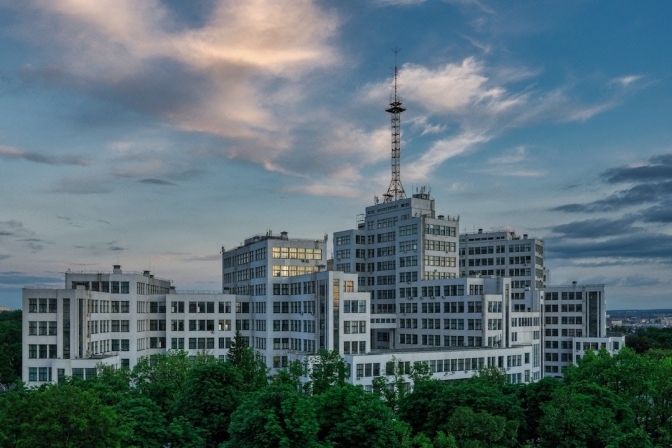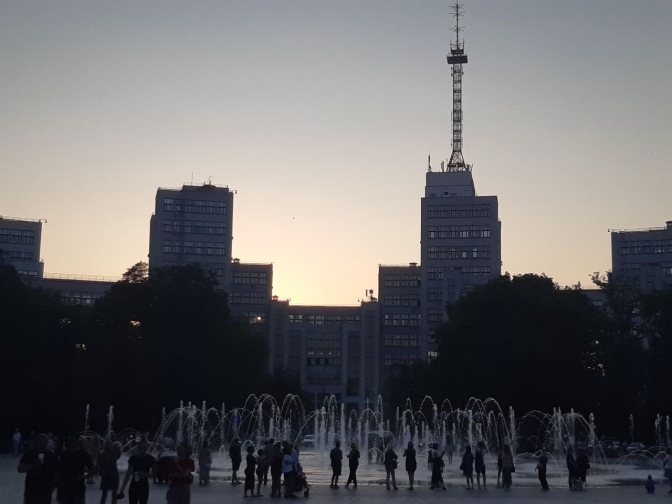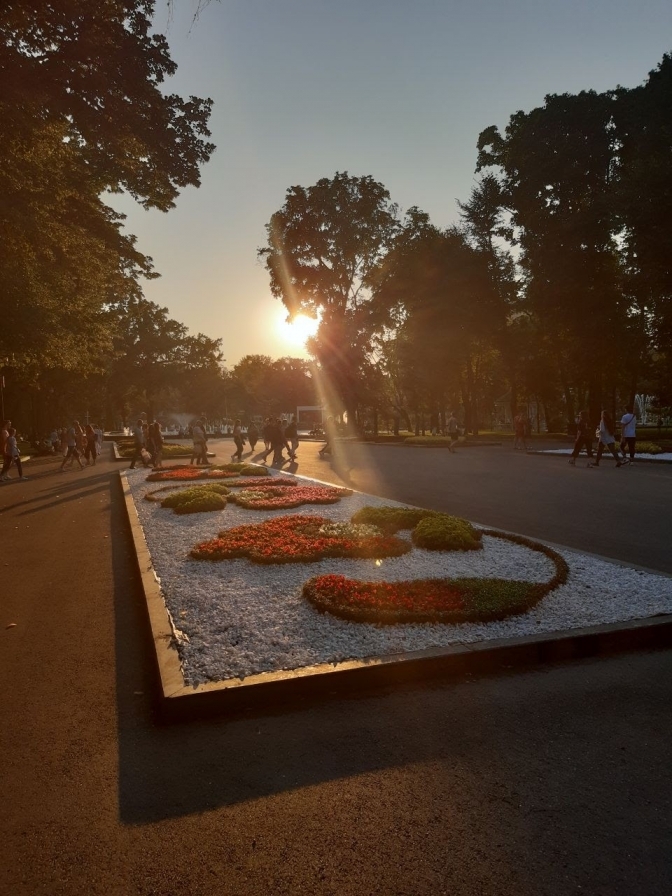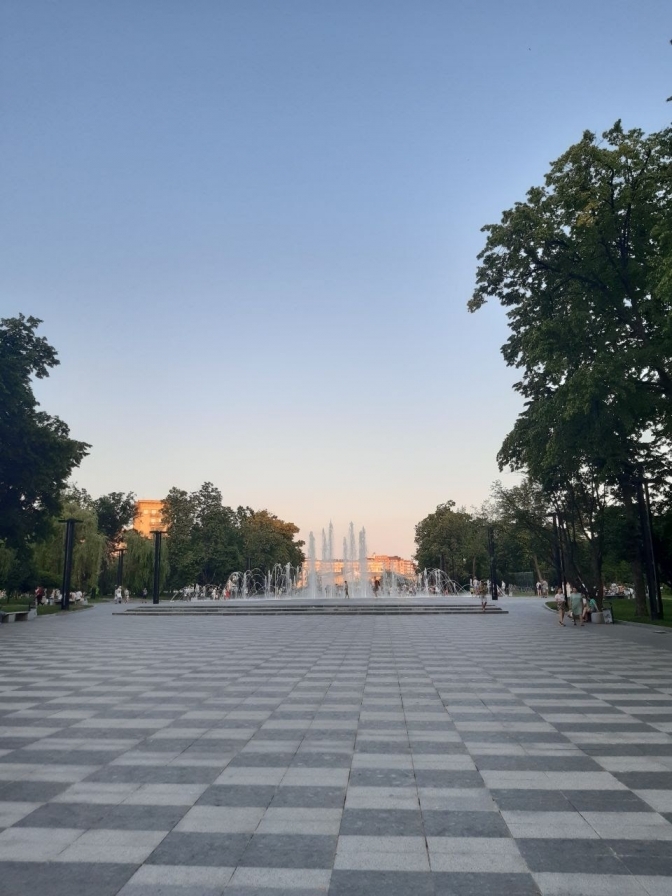
Derzhprom building in Kharkiv | Photo by Bohdan D. on Unsplash
By Vitalii Holich
Recently, in an interview with the Washington Post, Ukrainian President Volodymyr Zelenskyi expressed the assumption that Russia may be aiming first to occupy Kharkiv, which would start the full-scale war over Ukraine.
Kharkiv has been in this zone of speculation before. In 2014, claiming that he was defending the Russian-speaking population, Russian President Vladimir Putin tried to establish a Kharkiv people’s republic, as he did in the breakaway Donbas region of Ukraine. That attempt failed–and we look at the current situation in this Ukrainian city of 1.4 million people.
Kharkiv is often called a «university city» and the «first capital» as it was the first administrative centre of Soviet Ukraine from 1919 to 1934. Back in 1805, the Kharkiv university was founded, which transformed then a small provincial town into the powerful cultural hub and despite the Soviet occupation the first centre of Ukrainian national revival.
After the past two centuries, the picture may look a bit different. The city is now predominantly Russian-speaking, the ceiling of the main railway station is decorated with paintings in the Russian imperial style, socialist modernism infrastructure and remnants of Soviet symbolics spread over the city. This all may create a false impression until we complement the picture with citizens’ pride for their home, the atmosphere of intelligent peace, and a unique bilingual mentality of South-Eastern Ukraine.

As I travelled to get acquainted with Kharkiv last July, the first thing that astonished me was the sky – there was unbelievably much of it over the wide city centre so that the sun was unrestricted in flooding its every corner. At that moment, I realised the meaning of one more Kharkiv’s name – «the sun city,» as a prominent Ukrainian poet and punk-rocker Serhii Zhadan named his home [you can listen to the song here].
However, that was not the main light on which Kharkiv was rich. Most people I accidentally met on the streets or establishments during that six days expressed a unique sense of home, which made me feel that I, who used to live in four Western-Ukrainian towns during my childhood, belonged to this part of my country as well.
Among locals, almost everyone talked to me in Russian, but it didn’t prevent me from freely using Ukrainian, and them – from understanding me without any note of embarrassment or hostility.
Right after the arrival, my girlfriend, a native of Kharkiv, brought me to a small church bakery where I tasted the «Orthodox rolls», as I started to call them afterwards, which cost 12 UAH. I remember buying a couple of them and telling the seller that I would pay banknotes of 200 UAH and two of 2 UAH, in order to make it more convenient to give me a change. I told this in Ukrainian to an old woman whom I heard speaking Russian.
But after listening to me, she responded with a benevolent reproach in Ukrainian, saying that if I wanted to make it really convenient, I would give 20 UAH instead of 200 banknote. This language transfer with a local accent was unexpected but pleasant because I didn’t even require it.

Obviously, a language law article came into force in January 2021, which obliges all the service sphere workers in Ukraine to serve customers in Ukrainian. In the Russian-speaking Kharkiv, the receptionists in my hostel, as well as waiters of the nearest restaurant where I ate, always followed this rule.
But even though in some other establishments I was served in Russian, it didn’t change much to me. My position is that the law is important, and Ukrainian should be used to the highest extent in the public sphere as our cultural weapon against Moscow. Still, I fully support people’s right to speak whatever language they wish in personal conversations if the other person doesn’t mind. I didn’t mind, and I liked these bilingual small talks when we understood each other without a barrier in spite of speaking two different mother tongues.

This mutual understanding preserves the existing harmony of the Russian speaking city, the second-largest in Ukraine and located just 35 km to the border with Russia. Putin may build his illusions, but we hope he would soon realise that Ukrainians will throw his army into a disaster, as well as his power, should he only shoot one time in our direction.
«I will take a gun and go fighting… will tear them as bad as I can» – a strongly built elderly Kharkiv resident speaks decisively in Russian, giving a comment to Current Time TV. There are a lot of those who know how to operate with weapons, and they will defend their home.
By Vitalii Holich
You can read a Ukrainian language version of this story here.
Follow Lviv Now on Facebook and Instagram. To receive our weekly email digest of stories, please follow us on Substack.
Lviv Now is an English-language website for Lviv, Ukraine’s «tech-friendly cultural hub.» It is produced by Tvoe Misto («Your City») media-hub, which also hosts regular problem-solving public forums to benefit the city and its people.












